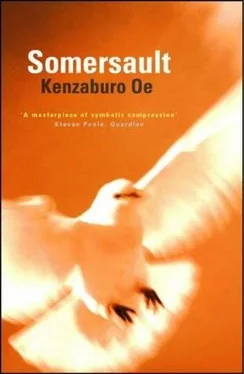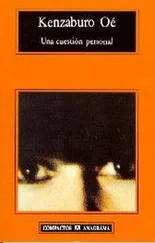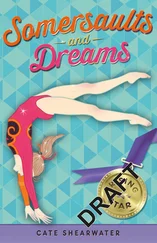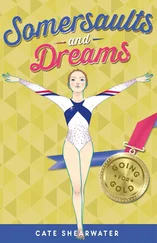At the grandstands, the boat passed around the Japanese boats to arrive at the inundated steps, and Ikuo walked up them alone. Dancer ran up to him with such force she almost sent him falling back into the water.
"Murderer! Did you hear the voice telling you, Do it?" Dancer cursed him, slamming her body into his.
Probably no one else heard that besides Ogi, who'd come running after her. Now a different kind of stir swept through the crowd, mixed in with screams here and there, and the stir rose even louder. Seeing that Dancer was being restrained, Ogi turned to look back at the island, where the surprisingly high flames illuminated, at the base of the wooden frame, which itself was ablaze, the two shadowy figures from before crouched down, hugging each other, their free hands held up to shield their faces from the flames.
The papier-mâché Guide on top of the burning frame seemed to leap and, together with the other dolls around it, went up in flames. The fire now reached to the cypress branches piled there, to the luxuriant leaves of the smaller branches; then even the thick trunk of the tree, like a pillar rising up through all that was piled around it, began to burn.
In the midst of new screams, the mass piled up on the upper level that covered the wooden frame collapsed in a shower of sparks onto the two pros- trate figures. In the reddish glow of the flames things collapsed one after another. Shouts and crying voices rose up. The roar of the flames was rivaled by the sound of the wind rising up from them; the entire area around the lake was like a strangely clamorous festival.
Like the agitated crowd around him, Ogi's eyes were riveted on the flaming giant cypress, but he sensed some disturbance, spun around, and saw the Technicians' security detail grab the person wearing the papier-mâché figure of Guide and roughly rip off the disguise. Gii emerged from it, dressed in T-shirt and jeans. The young man was limp and dripping sweat as if a bucket of water had been poured over him.
An even greater scream went up as the papier-mâché Guide on the island fell to the ground from the blazing frame and bounced up, and out of the wreckage appeared a human body.
EPILOGUE: THE EVERLASTING YEAR
Young Ogi, accompanied by the American newspaper reporter Fred Parks and Mrs. Tsugane, visited Maki Town for the first time in more than a year. In the intervening time Ogi had married Mrs. Tsugane, so it was strange to keep calling him by his old appellation, though that's what he planned to go by with everyone in the Hollow. The three of them landed at the Matsuyama airport, transferred to the express train, and by the time they got off at Maki Station a December snow was steadily falling, something Ogi had never experienced in Tokyo. The man-made forests that made up most of the mountain ranges surrounding the Maki basin looked as if a brush had been used to sweep polishing powder over the blue-black earth. Despite the heavy snow the air was filled with the approach of a gentle twilight. Snow had piled up in the square in front of the station, and the roads leading out from that spot were already covered in white, with not much traffic at that time of day. No taxis were waiting outside the station.
They'd called ahead from the Matsuyama airport to say they'd be taking the last express train of the day, and since no one was there to greet them Ogi considered phoning again. He wasn't at all sure, though, whether at this time of day Dancer would still be working in the office next to the chapel. She'd gotten married too, to Ikuo, and was now in overall charge of running the Church of the New Man. It was windy as well as snowing, and Fred, who wore only an old trench coat, was grumbling about the cold.
Before long a brand-new Nissan President luxury sedan went past the prefectural road and then turned back toward them. The car scattered newly fallen snow in the intersection in front of the square as it made a wide detour back, coming to a halt in front of the windswept station exit where Ogi and the others were waiting with their luggage.
Mr. Matsuo of the Fushokuji temple opened the driver's door and leaned out to greet them. Then he said, emphatically, "This looks like it'll be the first major snowfall we've had in some time. Even if it weren't snowing so much, taxis don't like to drive to the Old Town. With the recession they've cut back the number of cabs, plus the drivers are still a little bit shy about picking up foreigners. Fm not saying they're prejudiced or anything, it's just that they can't speak English."
Mr. Matsuo got out of the car, dressed in a dark navy-blue jacket, and darted about, helping first Mrs. Tsugane and then Fred into the backseat; he stowed their luggage in the trunk and motioned to Ogi to sit in front. The passenger seat, like all the other seats, was quite plush.
"Weren't you on your way downriver?" Ogi asked hesitantly.
"I was supposed to attend a meeting of the River Conservancy group at the sake manufacturer's place. With the Fireflies busy running the Farm, the Village Association group and I have taken over these duties. But with all this snow, it might be smarter to skip the meeting, don't you think?"
They passed by the newly built overpass at the confluence of the Kame and Maki rivers and then drove upriver along the prefectural road, already covered in four inches of snow. As they drove, Ogi reintroduced Mr. Matsuo, whom he remembered meeting at the summer conference, to Mrs. Tsugane.
Mr. Matsuo went back to talking about the snow.
"Driving through the snow like this makes me think of Morio's music.
He was a very special and pure person, his sister too. Even now the church plays his music all day long to mark events in the daily schedule. Every time I go over to the Hollow to see Ikuo about something, it always amazes me-"
"He composed pieces about the snow?" the always level-headed Mrs.
Tsugane interrupted.
"I think he must have, since he composed lots of short pieces," Mr. Matsuo said kindly to her, following the deferential way Ogi treated his older wife.
"But there's something throughout all of Morio's music that conveys a kind of snowy feeling. There's a saying by the famous Buddhist priest Dogen that one should always be in harmony with the melody of the snow. I think it means that snow is silent, and one should play in concert with that.
"Morio was mentally challenged, but he made up for it with a keen sense of sound," Mr. Matsuo continued. "When he composed his music, I imagine he put things in the real world and things he felt and thought on an equal footing. That's how I feel whenever I hear his music and look at the falling snow. Even if we know we're supposed to be in harmony with the melody of the snow, clever musicians never take it that far, though for Morio that was the most natural thing in the world."
"Fred wants to know which text that quote is from," Mrs. Tsugane said, after she had explained in English to Fred that they'd been talking about the monk Dogen.
"I don't know if there's a translation of it, but it's from the Dogen Osho Koroku. "
"He wants to know if this is different from the Eihei Koroku."
"It's the same."
"He says that maybe snow is often mentioned in Dogen's sermons because of how cold it was in Kyoto and Fukui, where he lived."
"Fred, I underestimated you," Mr. Matsuo said. "I trained at the Eihei Zen temple, but I've never really read the entire text. Learned it instead by ear-in Dogen's teachings there's the term a sixth ear. Do you say that in English? Six ears?"
Fred Parks laughed and didn't pursue the subject any further. In a fine mood, Mr. Matsuo went on about the snow.
"When's it's snowing this hard, the local people know just how much it's going to accumulate. They used to be quite nervous about it, knowing how many days the delivery trucks wouldn't be able to get through. The produce grocer along the river used to put chains on his truck and dash off to buy supplies and be buried in snow on the way back. Sometimes the fire depart- ment would have to be called out.
Читать дальше





